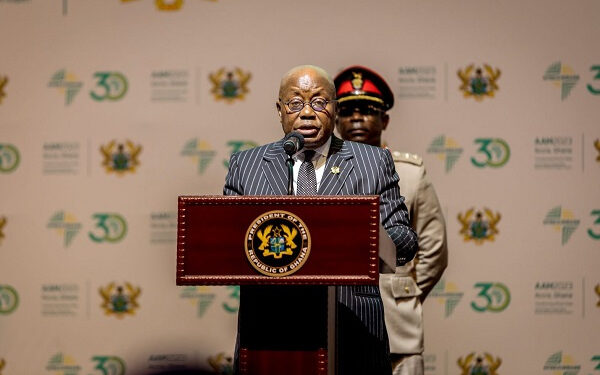‘Broke’ Ghana registers 618 delegates for COP 28 in Dubai
Ghanaians on social media have marveled at the number of delegates who are being sent to the conference despite the current financial status of the country.
Data provided by the United Nations Framework Convention on Climate Change (COP 28) has shown that Ghana registered 618 delegates for the 28th Conference of Parties.
The number of delegates is almost more than 100% increase in the number of delegates the government sent in 2022 and 2021.
At COP 27 in Egypt, Ghana presented a delegation of 350 and 337 delegates at COP 26 comprising state and non-state actors.
It has also been noted that some of the delegates were funded by development partners.
The list consists of 95 persons on the official “parties” list and 523 on the “party overflow” list.
Ghanaians on social media have marveled at the number of delegates who are being sent to the conference despite the current financial status of the country.
COP 28 began on November 30 and will end on December 12, 2023.
Meanwhile, the Minister for Transport, Kwaku Ofori Asiamah, is expected to join President Nana Addo Dankwa Akufo Addo to launch Ghana’s new Electric Vehicle (EV) Policy in Dubai, United Arab Emirates at the ongoing Conference of Parties 28 (COP28).
The policy is to create an enabling environment to drive electric vehicle uptake in Ghana.
The National Electric Vehicle Policy is expected to provide market signals and help to decarbonize the transport sector in line with Ghana’s National Energy Transition Plan 2022- 2070 and global commitments on climate change.
The Core Values and Principles of the policy includes the health and Safety in the use of electric vehicles, Equity and Fairness, Circular Economic Principles and Practice, Battery Recycling and Inclusivity.
The policy has some key strategies and implementation framework that will guide the country towards its decarbonization agenda.
The Policy will be implemented in Phase as follows:
a. 2024-2026. This phase will be the Preparatory Phase. The key focus will be on addressing the challenges and barriers to EV uptake.
b. 2027 – 2035. Ensuring a successful take-off and successful transition to EVs in Ghana. The target is that by the end of this phase, EV penetration rate will be around 35%.
c. 2036 – 2045: During this phase, efforts will be made to ensure that, by the year 2045 no new petrol or diesel vehicles will be sold or imported into Ghana.
The ministry believes that the policy will be a living document that will be updated when the need arises to keep up with the changing dynamism in the industry and other commitments.
Source:norvanreports


